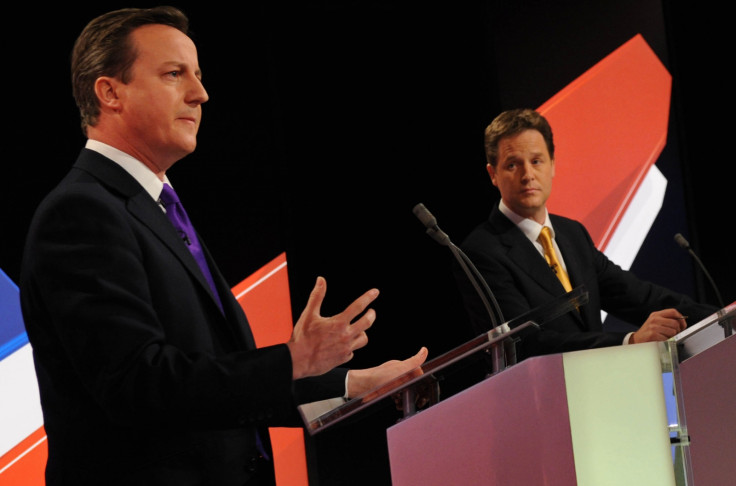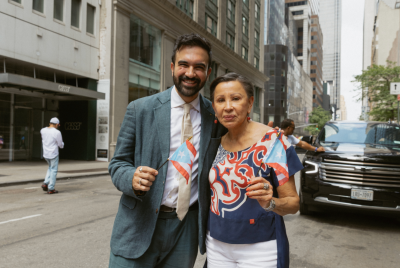David Cameron TV debate storm: Sky might 'empty chair' the prime minister but the BBC wouldn't

David Cameron's reluctance to engage in a one-on-one debate with Ed Miliband has brought rousing charges of political cowardice and feverish speculation about empty chairs. But, beneath all the spin and bluster, it's important to examine the underlying issues which have made Cameron so reticent - and the implications of his seven-way debate proposal.
First of all, the two words on everyone's lips: 'empty' and 'chair.' If Cameron did decide to forego the debates, people have been speculating as to whether the major broadcasters would use a vacant seat to ridicule his decision.
Sky, Channel 4, ITV and the BBC have all said they would be prepared to 'empty chair' the Prime Minister. But I'm not so sure. My belief is that Sky might do this, but it is unlikely the BBC would follow them.
Cameron has, of course, said that he would be prepared to take part in a debate made up of all seven established party leaders before the start of the campaign. In reality this would not really be a debate at all; more a series of disconnected views that would leave voters confused rather than enlightened.
But why is the Prime Minister so reluctant to take part in a two-way debate? Well he will be mindful of the lessons of 2010, when Gordon Brown held a three-way debate involving the leaders of all three political parties. That in itself was a break with tradition; it was customary in general elections for the challenger to call for a debate with the prime minister who would then refuse the invitation. However, in 2010 Brown thought that he was so far behind that he might as well take the risk as he had nothing to lose. By doing so, he set a precedent.
The first debate had an average audience of 9.4 million. The second debate, which was not carried live by BBC or ITV, brought Sky News its biggest-ever audience of 4.1 million. The final debate was seen by 8.1 million. These figures rivalled the audience for popular television soaps.
The Liberal Democrats were seen as the beneficiaries of the debate in the sense that they raised Nick Clegg's profile and made him the equivalent of the two other party leaders. He did not reap the reward in votes and seats that he hoped for, in part because some of the converts were drawn from sections of the population less likely to vote, e.g., young women who had completed education at the school leaving age.
Wary of the Farage lesson
Cameron is clearly reluctant to engage directly with Miliband, knowing that, at the moment, voters have difficulty seeing the Labour leader as the occupant of 10 Downing Street. A debate could only enhance his ratings and there is always the risk of a gaffe by the prime minister which could change the course of the campaign. Nick Clegg did not emerge as a winner from his debates with Nigel Farage over British membership of the European Union.
'A debate could only enhance his ratings and there is always the risk of a gaffe by the prime minister which could change the course of the campaign.'
But will the cowardice charges hurt Cameron? Some voters may resent the fact that his actions have deprived them of a debate. Someone who has already decided to vote Conservative is unlikely to change their mind and in any case the storm will have died down by the time the election has been held. However, some may see it as another instance of the established political class been unwilling to engage with citizens give their vote to insurgent minority parties.
In principle, such debates are desirable because they inform voters about the stance of the parties on the issues of the day and engage them in the process, encouraging them to vote. One consequence of the absence of debates may be a drop in turnout. It is, however, much more difficult to come up with a fair and acceptable formula for debates in a fragmenting multi-party system, although separate debates for Scotland, Wales and Northern Ireland might have helped.
Professor Wyn Grant is part of the Politics and International Studies department at Warwick University. Click here to find out more about him.
© Copyright IBTimes 2025. All rights reserved.




















